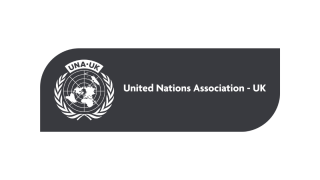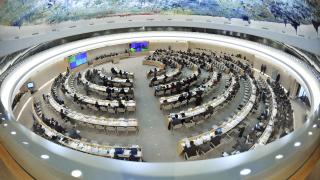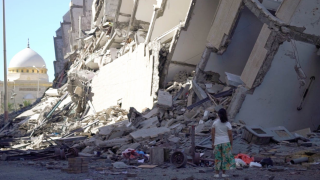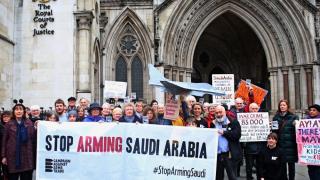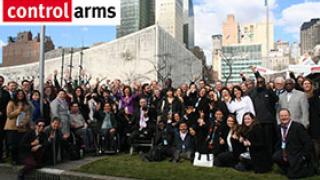
After a hard fought campaign by an international coalition of NGOs working in partnership with a number of progressive governments (including the UK), UNA-UK is proud to have played a part in the creation of an Arms Trade Treaty, adopted with overwhelming approval at the UN General Assembly (UNGA) on 2 April 2013.
While the Treaty does not incorporate all the elements that UNA-UK has been campaigning for, it is none the less an historic achievement that will provide an important first step towards the objective of reducing armed violence, conflict and human rights abuses worldwide.
It is also an important success for the United Nations, and an extremely positive precedent that the treaty was adopted at the UNGA. This allowed the weight of the vast majority of supportive states to be felt, in contrast to those formats that allow a minority of obstructive states to block progress.
With the current worldwide momentum on this issue, the UK now has an opportunity to swiftly sign and ratify the treaty and encourage others, particularly the major exporters, to follow suit. The UK also has an important role to play in its interpretation and implementation of the Treaty.
Interpretation and implementation
One way that the Arms Trade Treaty can start life as a strong instrument is for the first 50 ratifying states to ensure that they implement the Treaty to a very high level, thereby pushing international customary law as high as possible.
Specifically, UNA-UK believes that, by implementing a strong interpretation of the ATT, the UK and other progressive countries can lead by example and continue to champion a Treaty that will deliver maximum impact in terms of peace and security. We think that this could be addressed in the following ways:
- Broaden the scope of the treaty by widening the UK's national control list to include all conventional weapons, including unmanned combat aerial vehicles (UCAVs).
- Make public the UK's annual report to the Secretariat, and include in that report ammunition, munitions, parts and components as outlined in Articles 3 and 4.
- Include the risk of diversion of ammunition, munitions, parts and components as outlined in Articles 3 and 4 as part of the export assessment criteria.
- Apply the terms of the Treaty to all forms of international transfer including gifts and loans.
- Clarify that all 'defence corporation agreements' (including pre-existing international agreements) will be consistent with the terms of the Treaty.
Once the Treaty has entered into force, the UK could build support for having this interpretation enshrined into an amended version of the Treaty, thereby raising the global bar of arms control above the important but first-stage baseline set by the original Treaty.
Correspondence between Sir Jeremy Greenstock and FCO Minister Alistair Burt
UNA-UK Chairman Sir Jeremy Greenstock has written to FCO Minister Alistair Burt to thank the UK government for its efforts to date, and to urge the UK to lead by example and implement a strong interpretation of the Treaty that will deliver maximum impact, as outlined above.
This correspondence follows a letter from Alistair Burt to Sir Jeremy in which the Minister recognises the hard work and dedication of NGOs which contributed to the adoption of the Arms Trade Treaty.
The critical role played by civil society in the process has also been recognised in a statement by the UN Secretary-General Ban Ki-moon.

